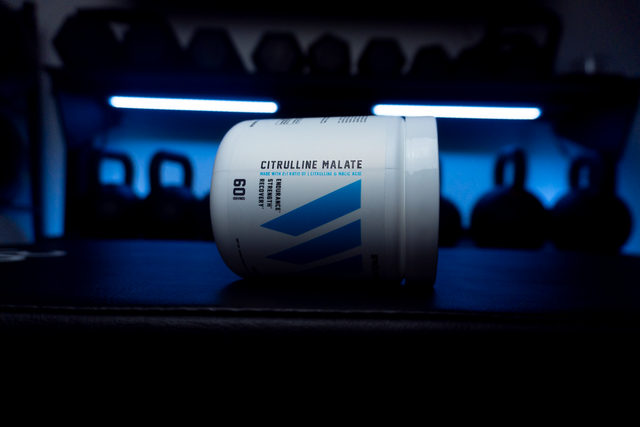What Are Amino Acids? A Refresher on the Building Blocks of Life and Muscle
If you don’t remember much from high school biology, you’re not alone. Between passing notes, making paper airplanes, and asking ourselves “Will I ever use this?”, we might’ve missed some of the basics. Well—now you’re here, and yes, you do need to know this.
Let’s take a quick, no-nonsense refresher on what amino acids are, why they matter, and how they play a foundational role in building muscle, improving performance, and optimizing recovery.
What Are Amino Acids?
Amino acids are often called the building blocks of protein—and for good reason. There are 20 common amino acids, each serving critical roles in the body, including:
-
Muscle growth and repair
-
Enzyme and hormone production
-
Energy metabolism
Each amino acid has a similar structure:
-
An amino group
-
A carboxyl (acidic) group
-
A central alpha carbon bonded covalently to both
These compounds are essential to biological function and categorized into three primary types:
Types of Amino Acids
| Type | Description | Examples |
|---|---|---|
| Essential Amino Acids (EAAs) | Must be obtained through diet or supplements | Leucine, Isoleucine, Valine, Lysine, Tryptophan |
| Nonessential Amino Acids | Produced naturally by the body | Alanine, Glutamic Acid, Serine |
| Conditionally Essential Amino Acids | Become essential under stress, trauma, or illness | Glutamine, Arginine, Proline |
For example, glutamine is conditionally essential. In cases of surgery, trauma, or extreme stress, patients are often administered glutamine intravenously to aid immune response, protein synthesis, and muscle recovery (Cruzat et al., Nutrients, 2018).
Amino Acid Categories at a Glance
Essential Amino Acids (EAAs):
-
Histidine
-
Isoleucine
-
Leucine
-
Lysine
-
Methionine
-
Phenylalanine
-
Threonine
-
Tryptophan
-
Valine
Nonessential Amino Acids:
-
Alanine
-
Asparagine
-
Aspartic acid
-
Glutamic acid
-
Serine
-
Tyrosine
Conditionally Essential Amino Acids:
-
Arginine
-
Cysteine
-
Glutamine
-
Glycine
-
Proline
Branched-Chain Amino Acids (BCAAs)
The most famous amino acids for muscle growth are BCAAs:
-
Leucine
-
Isoleucine
-
Valine
These are essential amino acids with a branched molecular structure that play a key role in:
-
Muscle protein synthesis
-
Energy production during training
-
Preventing muscle breakdown
RELATED ARTICLE: 4 Benefits Of BCAAs That Improve Athletic Performance
Studies show that BCAAs help maintain a net positive amino acid balance, keeping the body in an anabolic state. Without them—or without protein—you risk going catabolic, breaking down muscle tissue for energy (Howatson et al., JISSN, 2012).
Popular Amino Acid-Based Supplements
Creatine
Creatine is composed of:
-
L-arginine
-
Glycine
-
L-methionine
These amino acids form phosphocreatine, stored in muscle for explosive energy. Research shows creatine supplementation increases muscle creatine stores by 15–40%, enhancing anaerobic performance (Buford et al., JISSN, 2007).
RELATED ARTICLE: What Is The Best Type Of Creatine?
Beta-Alanine
Beta-alanine is a non-essential beta amino acid that bonds with L-histidine to form carnosine—a key muscle buffer.
Carnosine delays muscle fatigue and increases training volume by:
-
Buffering lactic acid buildup
-
Maintaining optimal pH levels during high-intensity activity
RELATED ARTICLE: 6 Reasons Why You Should Supplement With Beta-Alanine
Citrulline Malate
Citrulline Malate combines L-citrulline with malic acid to support:
-
Nitric oxide (NO) production
-
Vasodilation
-
Blood flow and nutrient delivery
This improves:
-
Stamina
-
Strength
-
Recovery
RELATED ARTICLE: The Ultimate Guide To Citrulline Malate
How Amino Acids Work in the Body
When you consume protein—whether from food or supplements—your body digests it and breaks it down into individual amino acids. These amino acids are then absorbed into the bloodstream and used for a variety of critical biological functions, including:
-
Repairing and rebuilding muscle tissue
-
Producing enzymes and hormones
-
Creating neurotransmitters that affect mood and brain function
-
Transporting nutrients and oxygen through the blood
-
Supporting immune function and cellular repair
The body is in a constant state of protein turnover—breaking down old proteins and building new ones. If your intake of amino acids exceeds breakdown, you're in a muscle-building (anabolic) state. If not, you're in a catabolic state, where muscle is lost (Phillips et al., Journal of Nutrition, 2007).
Why Amino Acids Are So Important
Amino acids aren’t just for bodybuilders or athletes—they’re vital for anyone who wants to stay healthy, strong, and resilient. Here's why:
-
Without essential amino acids, you can’t build or maintain lean muscle
-
They regulate key systems like metabolism, immune response, and cell signaling
-
Amino acids like tryptophan and tyrosine are precursors to serotonin, dopamine, and other neurotransmitters that affect mood and motivation
-
In times of illness, injury, or intense stress, your body may require even more amino acids than usual
In short, amino acids are fundamental to how your body functions, recovers, and performs—both in the gym and in everyday life.
Key Takeaways
-
Amino acids are the building blocks of protein and essential for muscle growth, recovery, hormone production, and immune health.
-
Essential amino acids (EAAs) must be obtained from diet or supplementation.
-
Branched-chain amino acids (BCAAs) are a subset of EAAs and directly support muscle protein synthesis.
-
Conditionally essential amino acids (like glutamine and arginine) become crucial during stress, illness, or intense training.
-
Supplements like creatine, beta-alanine, and citrulline malate are amino acid-based and have clinically supported ergogenic benefits.
-
Supplementing with amino acids can help build lean muscle, reduce soreness, improve endurance, and boost recovery.
Recommended Supplements to Support Your Training
Maximize muscle growth, hydration, and performance with Swolverine’s elite formulas.
Trusted by CrossFitters, bodybuilders, and competitive athletes.
“Essential amino acids, particularly leucine, are the key regulators of muscle protein synthesis following resistance training.”
— Dr. Robert Wolfe, Professor of Geriatrics and Amino Acid Metabolism Researcher
(Frontiers in Nutrition, 2017)
Final Takeaway: Why Amino Acids Matter
Amino acids are vital to your health, performance, and recovery. Whether you get them from food or supplements, they play a critical role in:
-
Protein synthesis
-
Muscle repair
-
Fat metabolism
-
Hormonal balance
-
Immune health
If your goal is to build muscle, recover faster, and train harder, incorporating targeted amino acid supplements into your routine can provide the clinical edge you need to compete at a higher level.
RELATED ARTICLES:













